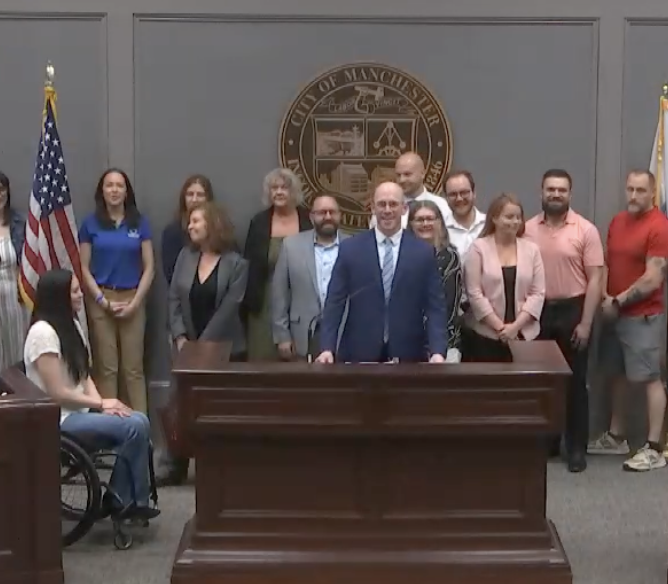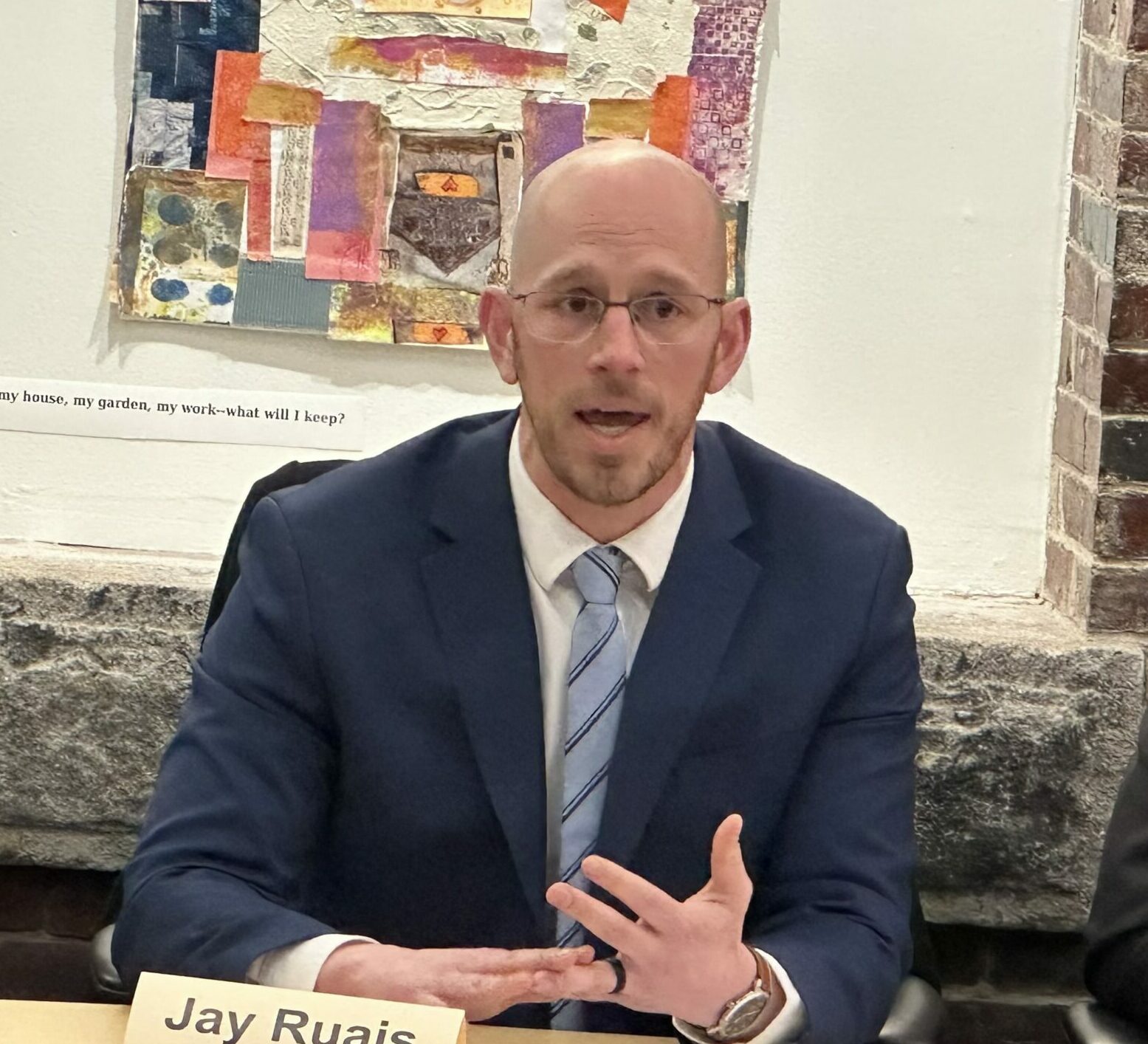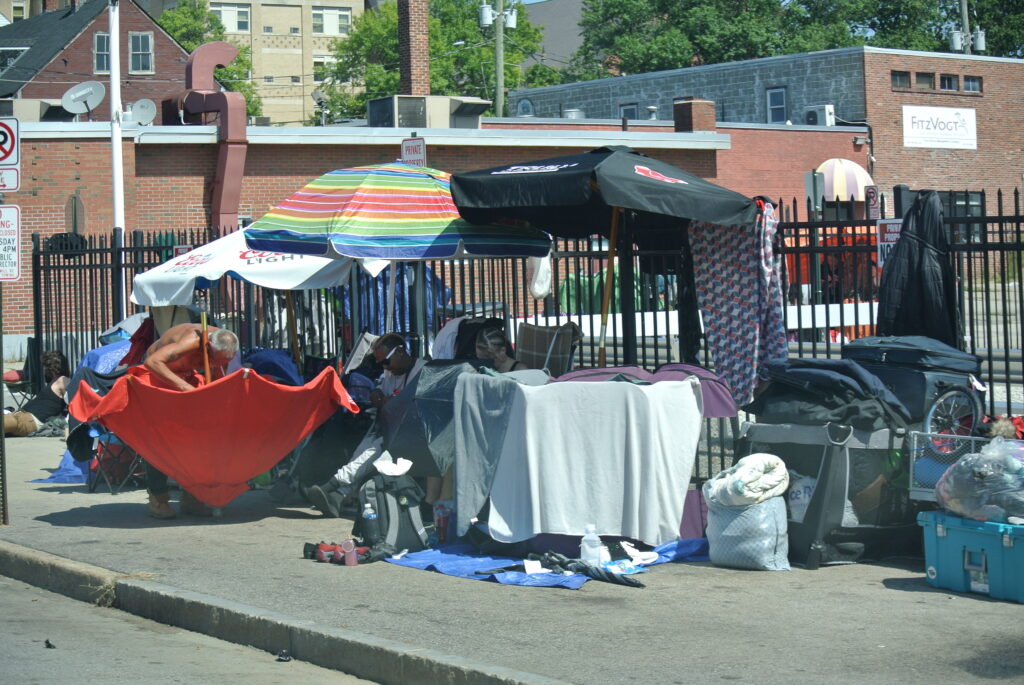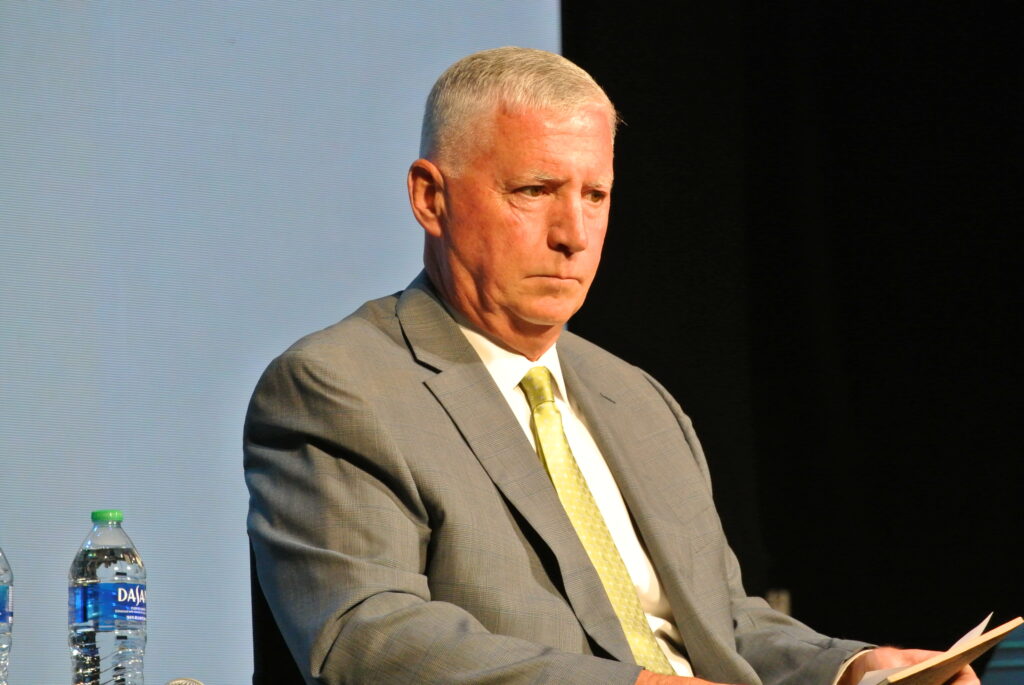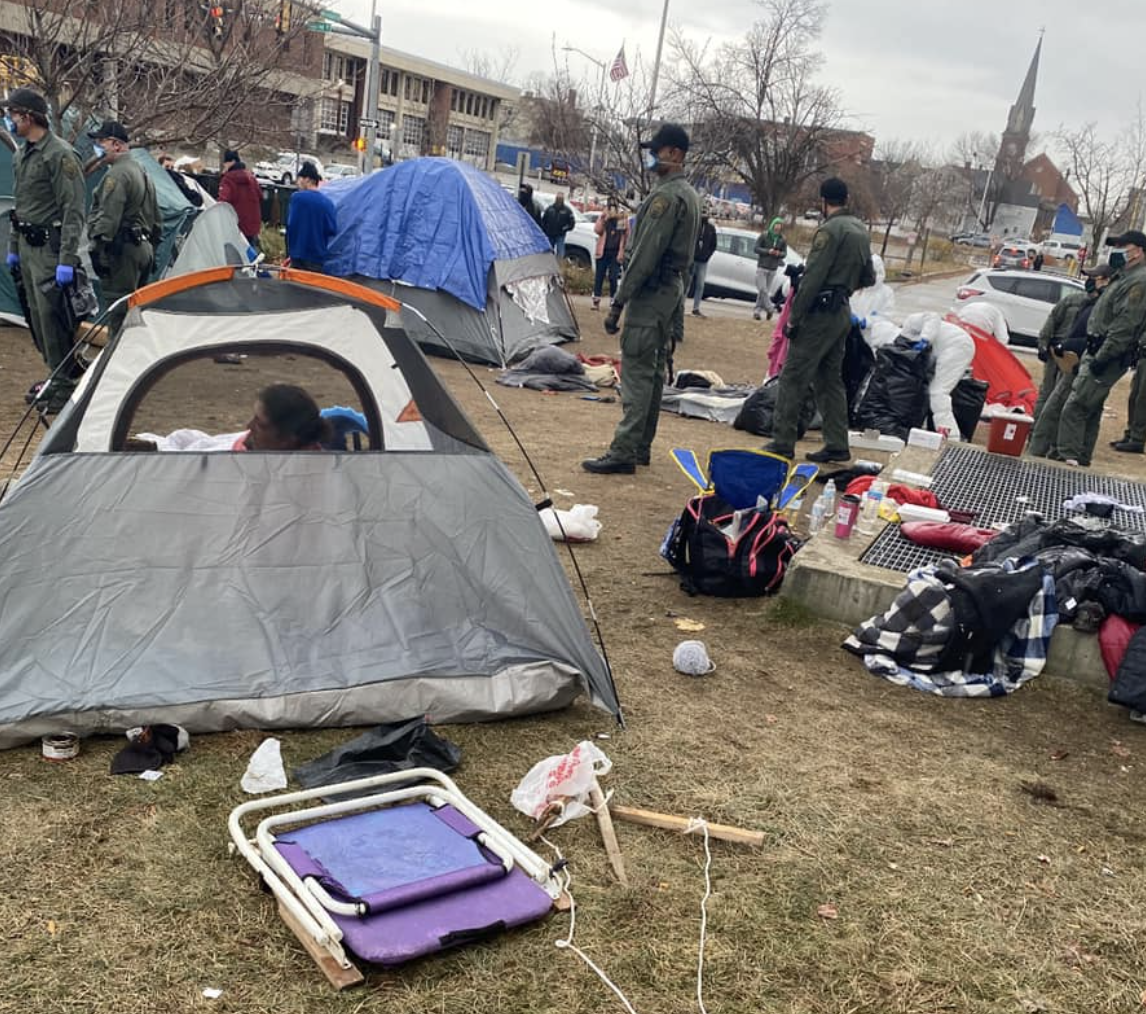March Numbers Bring More Good News in Manchester’s Opioid Fight
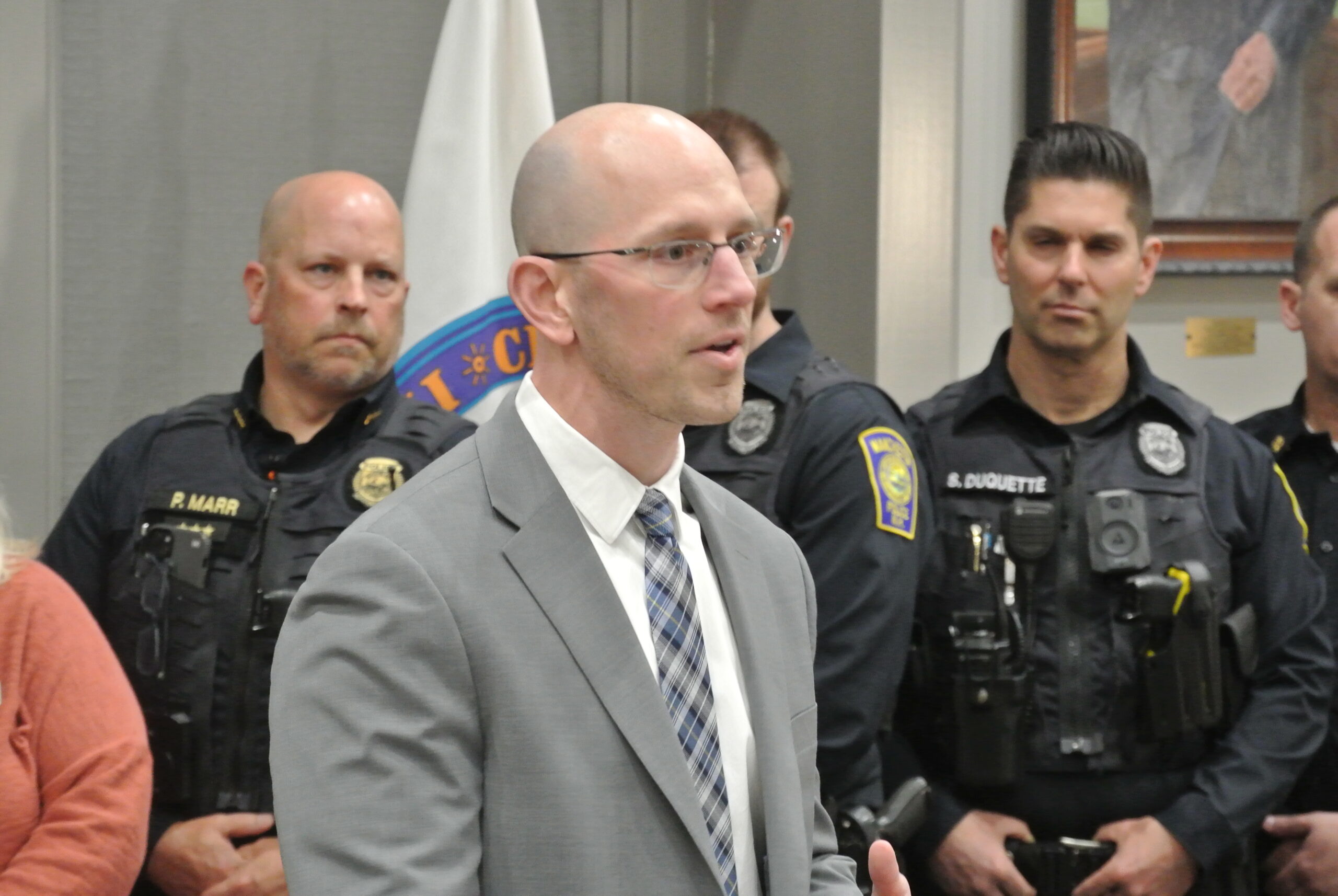
While every death is tragic, the fact that there was only one fatal opioid overdose in the city of Manchester last month is good news for a city that has long struggled to address the drug crisis. It’s the latest data point in a positive trend in the Queen City since Mayor Jay Ruais took office in January 2024.
“If these results continue, Manchester is on pace to realize the lowest numbers in suspected overdoses and deaths since the beginning of the opioid epidemic more than 10 years ago,” Ruais said Wednesday. “This is an incredible accomplishment. We’re saving lives, and getting people in need help.”
The one death out of the 33 suspected opioid overdoses last month brings the total fatalities up to seven for the year, compared to 47 deaths out of 527 suspected overdoses the year before.
Chris Stawasz with Global Medical Response, Inc., says Manchester is on pace for 357 opioid overdoses and 28 deaths in 2025. Global Medical Response tracks overdoses and fatalities in Manchester and Nashua, two cities hard hit by the opioid crisis in the last decade. Both cities are seeing a turnaround, according to Stawasz.
“March continued the trend of significantly lower overall opioid overdose totals in both communities, 14 percent below the rolling 12-month average,” Stawasz said.
However, while Nashua had far fewer suspected overdoses (16), five of those were fatal, a significantly higher single-month number than is typical. Nashua has already seen 12 deaths and could see as many as 49 if Stawasz’s projections hold for the rest of the year.
In Manchester, where 79 people died in 2022 out of 701 overdoses, Ruais says the lower death toll is welcome evidence that the city’s holistic approach is working. Since winning election, the Republican mayor has focused on empowering police, getting people in crisis access to medical care, and pursuing an effective strategy to get homeless people housed.
The opioid epidemic has been most acute among the city’s homeless population, and 25 of the March suspected overdose victims in Manchester were homeless. Stawasz said three of the overdoses took place in shelters.
Ruais has changed Manchester’s direction in dealing with homelessness, too. His emphasis is to build a collaborative network with city, state, and nonprofit organizations to get people off the streets and into shelters, address why they ended up homeless, and get them into permanent housing.
This week, Manchester announced its partnership with HarborCare, the Veterans Administration, and city landlords has resulted in housing for 40 homeless veterans thus far.
“The level of success we’ve reached in finding sustainable housing for our homeless veterans since our initiative kicked off last September has exceeded my highest hopes,” Ruais said.
Manchester’s Public Health Director, Anna Thomas, said Manchester is thankful for the help it has received from the Centers for Disease Control, as well as the combined efforts come from a community of health providers, city officials like Director of Overdose Prevention Andrew Warner, the Manchester Police Department, and ambulance company American Medical Response.
“All life is precious and every one saved is worth fighting for,” Thomas said.
The crisis isn’t over, Stawasz cautioned. Data from the Office of the Chief Medical Examiner indicates the drugs xylazine and carfentanil are showing up in the street fentanyl being used by addicts. Xylazine is worrisome, Stawasz said, and it does not respond to Narcan.
“Increasingly now mixed with illicit fentanyl, xylazine’s powerful sedative properties complicate EMS providers’ treatment of suspected opioid overdoses. It is undetectable to medics and Narcan does not reverse its effect,” Stawasz said. “When present, it requires a significant additional and prolonged effort to maintain an effective respiratory status on a victim.”

